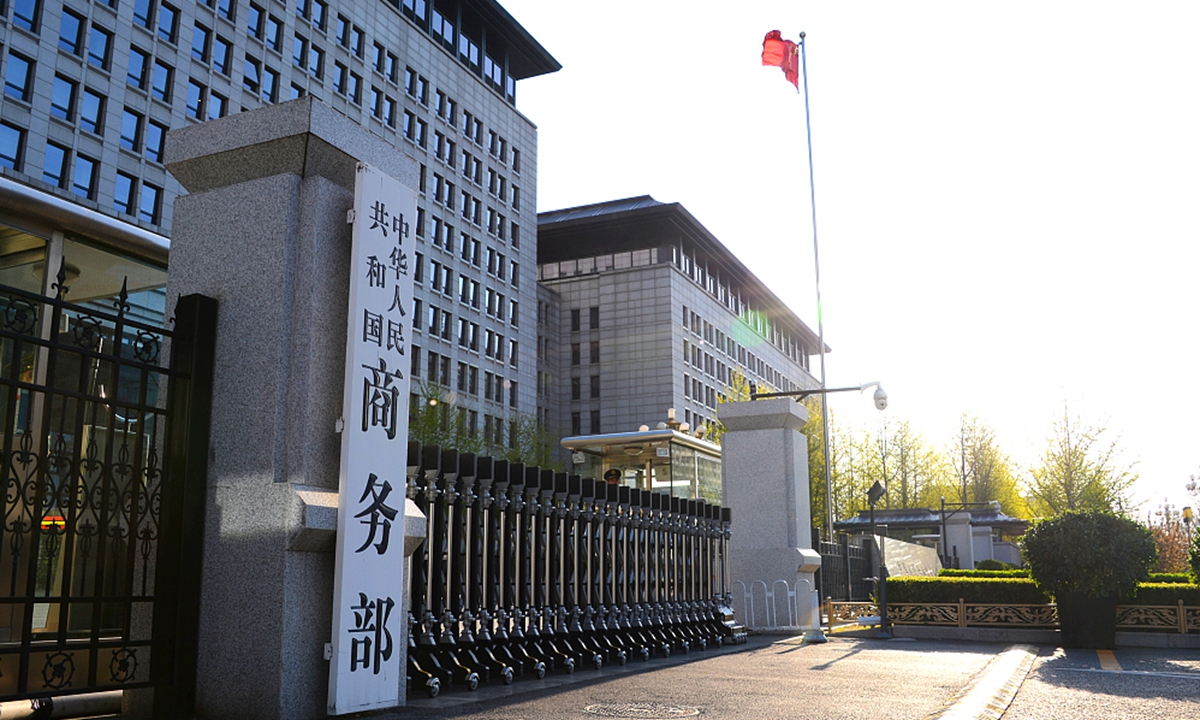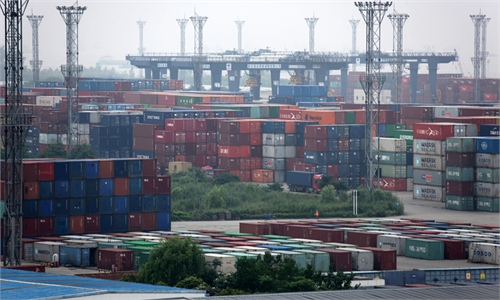China to promote negative list of cross-border trade in digital sector, but safety is the bottom line: MOFCOM

The Ministry of Commerce (MOFCOM) Photo: VCG
Ministry of Commerce (MOFCOM) officials said China will release a negative list of cross-border trade in the digital trade, but safety is the bottom line.
Wang Bingnan, vice minister of MOFCOM, made the remarks at the ongoing 2021 China International Fair for Trade in Services (CIFTIS) on Friday.
He said the ministry will release a negative list of cross-border trade, addressing digital trade issues, while maintaining a safe bottom line, but also docking international economic and trade rules.
He said it will also participate in the formulation of international rules, safeguard the multilateral trading system, and introduce policies and measures for the national digital service base.
Digital technology has been widely used since the outbreak of the epidemic, and more service trade has shifted online, which has accelerated the digitalization of the trade.
Digital trade refers to "trade that is digitally ordered and/or digitally delivered," according to a handbook on measuring digital trade published by the OECD, WTO and IMF.
Digitally ordered trade means "the international sale or purchase of goods or services, conducted over computer networks by methods specifically designed for the purpose of receiving or placing orders." Digitally delivered trade signifies "international transactions that are delivered remotely in an electronic format, using computer networks specifically designed for the purpose."
A report released by MOFCOM showed that during the 13th Five-Year Plan period (2016-20), China's digital trade increased from $200 billion in 2015 to $294.76 billion in 2020, an increase of 47.4 percent, and its share in the service trade increased from 30.6 to 44.5 percent.
The report predicts that during the 14th Five-Year Plan period (2021-25), China's digital trade will continue to expand. By 2025, the total trade of digitized services will exceed $400 billion, accounting for about 50 percent of the service trade.
The report said China has released several rules or laws such as the cybersecurity law and Data Security Law which have formed a framework to support and promote digital development.
Wang Dongtang, an official from MOFCOM, said during the 14th Five-Year Plan period, the ministry will establish relevant laws for data resource rights confirmation, and cross-border transmission. And it will also participate in the formulation of technical standards such as data security, digital currency, and digital tax.
The ministry said China's service trade development plan during the 14th Five-Year period has been completed and is undergoing the approval process, and digital trade will be included in the service trade development plan for the first time.


